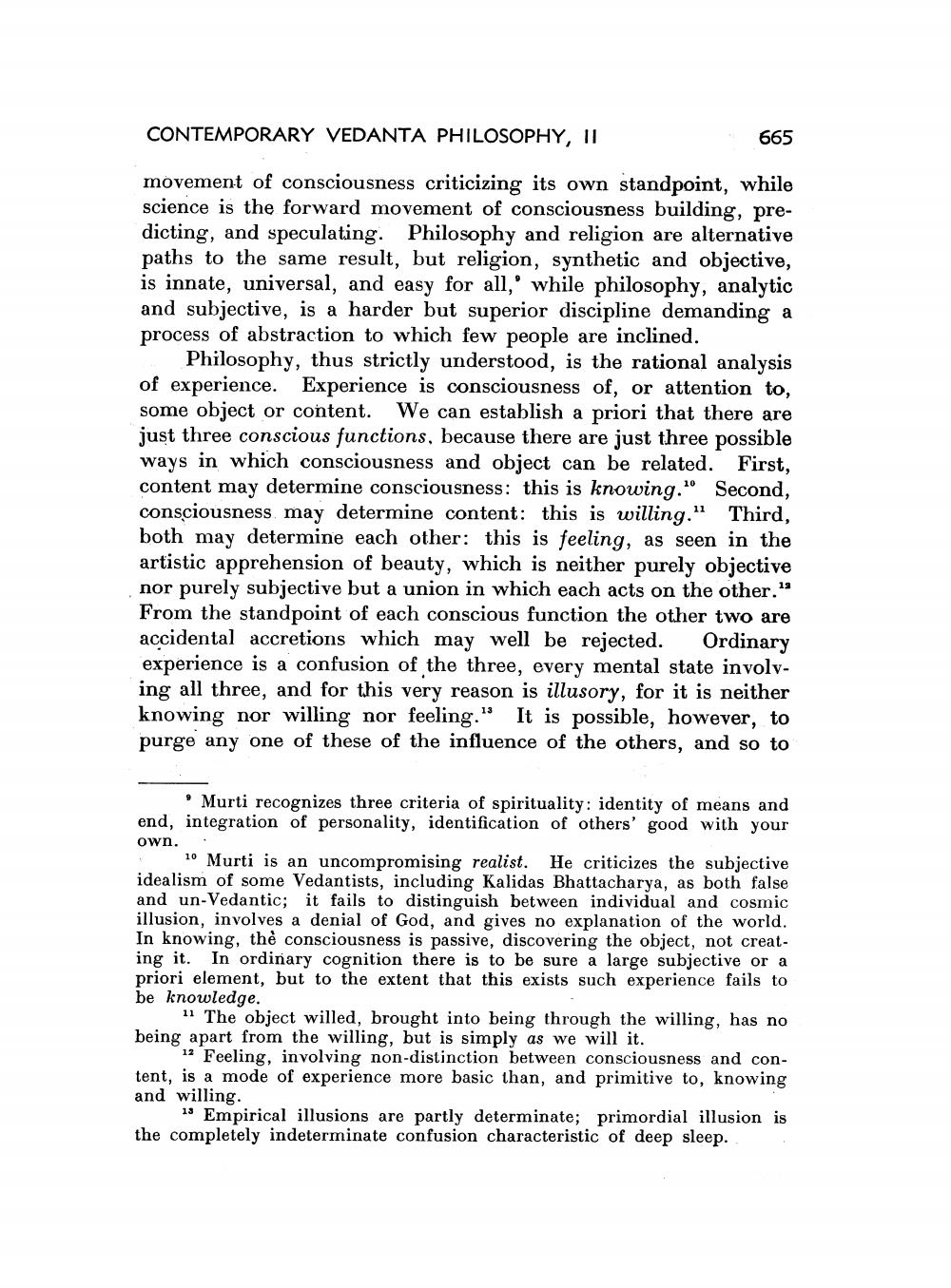________________
CONTEMPORARY VEDANTA PHILOSOPHY, II
movement of consciousness criticizing its own standpoint, while science is the forward movement of consciousness building, predicting, and speculating. Philosophy and religion are alternative paths to the same result, but religion, synthetic and objective, is innate, universal, and easy for all, while philosophy, analytic and subjective, is a harder but superior discipline demanding a process of abstraction to which few people are inclined.
665
Philosophy, thus strictly understood, is the rational analysis of experience. Experience is consciousness of, or attention to, some object or content. We can establish a priori that there are just three conscious functions, because there are just three possible ways in which consciousness and object can be related. First, content may determine consciousness: this is knowing." Second, consciousness may determine content: this is willing." Third, both may determine each other: this is feeling, as seen in the artistic apprehension of beauty, which is neither purely objective nor purely subjective but a union in which each acts on the other." From the standpoint of each conscious function the other two are accidental accretions which may well be rejected. Ordinary experience is a confusion of the three, every mental state involving all three, and for this very reason is illusory, for it is neither knowing nor willing nor feeling." It is possible, however, to purge any one of these of the influence of the others, and so to
• Murti recognizes three criteria of spirituality: identity of means and end, integration of personality, identification of others' good with your
own.
10 Murti is an uncompromising realist. He criticizes the subjective idealism of some Vedantists, including Kalidas Bhattacharya, as both false and un-Vedantic; it fails to distinguish between individual and cosmic illusion, involves a denial of God, and gives no explanation of the world. In knowing, the consciousness is passive, discovering the object, not creating it. In ordinary cognition there is to be sure a large subjective or a priori element, but to the extent that this exists such experience fails to be knowledge.
The object willed, brought into being through the willing, has not being apart from the willing, but is simply as we will it.
12 Feeling, involving non-distinction between consciousness and content, is a mode of experience more basic than, and primitive to, knowing and willing.
" Empirical illusions are partly determinate; primordial illusion is the completely indeterminate confusion characteristic of deep sleep.




